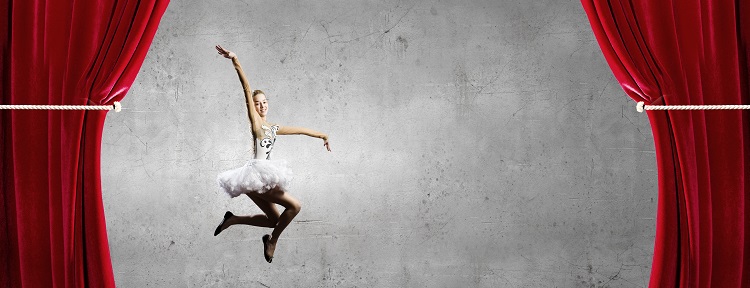
Ballet Etiquette, Part II
Thanks again to Lucia Rogers for contributing to my blog. As you will see in reading, she is passionate about dance and gives us some insight into how dance and the arts can enrich our lives. Here is some etiquette on attending a performance.
Attending a Ballet…
There is nothing like seeing a live performance; there is something very special about being there in the moment with the artists on the stage. It is live; no stop, rewind or redo….it is about being in the moment and hopefully being swept off your feet or taken to a different place while the dancers perform. I have seen my fair share of live performances but I’ll be honest in saying that I have spent far more time performing on stages rather than sitting in those plush seats!
We are heading into the holiday season and for many, a holiday tradition, is attending The Nutcracker. There are many versions that will grace stages all around the country as well as many other ballet classics and new works after the holidays. So here are a few tips to attending a dance performance and getting swept away…
Dress appropriately: Just like with any event the venue and subject will help you decide on what is appropriate to wear. A lot of companies are staying true to the traditional venue with classic ballets; however, many are incorporating a bit more casual series to their seasons. This is, in part, to hopefully expand who they reach by using more non-traditional settings and more contemporary repertoire. This has opened the doors to those who might not have attended in the past.
Be in the know: Dance usually does not have a dialogue so knowing what is going on beforehand will help in your understanding of the subject. Some ballets and works have a story and others are open to interpretations so the playbills usually have a wealth of information not only about the performance you are about to see, but also the dancers and their credentials. Some attendees also take this a little further and may do some research on the web about the dancers, music, company and/or performance before they attend. So allowing yourself plenty of time to arrive, mingle and get organized is encouraged. Doing this after the lights go down can often be a distraction to the artists as well as those around you. We would also hate for you to miss a special moment!
Appreciate the artists/choreographers: Artists-dancers, musicians and more have dedicated endless hours of work and this is their life and passion. There are always exceptions but as artists they don’t often go into this for the money, so showing your appreciation for their art is just one way of saying “thank you.” Applause for the conductor, dancers, choreographer, etc. are always welcomed at appropriate moments. Often times this is done for impressive technical movements and after pieces or sections. Dancers show their appreciation of the audience and their applause by a bow or curtsey, but there is nothing worse than to leave a stage as a dancer and the applause quickly fades or is gone. However, that is also something dancers have to be aware of so as to not take their sweet time after their dancing and ask too much of those watching.
Respect: All basic rules apply with respect. Respect to the venue and employees, respect to other attendees, and respect for the artists and the work that they do. With technology continually advancing the opportunity to record and take pictures can be done with such ease. This is great for our everyday life and experiences but for these live performances patrons are often asked to turn all electronic equipment off. This is not only to prevent any disruptions but also to prevent any pictures or videos being acquired illegally by an audience member due to copyright/trust/union agreements. This is becoming more and more of a problem so audience members respecting this request is very much appreciated. Many companies are selling or offer other options for those interested in photos or videos to remember the performance or dancers. It never hurts to see what might be available with your favorite company or artist!
The world of the arts and dance is so rich in history and has so many wonderful benefits; attending a live performance can be an enriching experience! As an artist I love nothing more than to share a piece of myself and become the role or character as it is an honor to perform for those who attend. The appreciation is more than you even know….My hope (as well as many other artists) is that you feel something or that you are taken along for a wonderful little journey in that hour or so. It is a very vulnerable yet exhilarating state that we put ourselves in, but I couldn’t imagine it any other way as true artistry and honesty comes from this. So check out the dance world; there are so many exciting things going on and continually evolving. There is something for almost every palate, so everyone should be able to find a performance they will enjoy!
